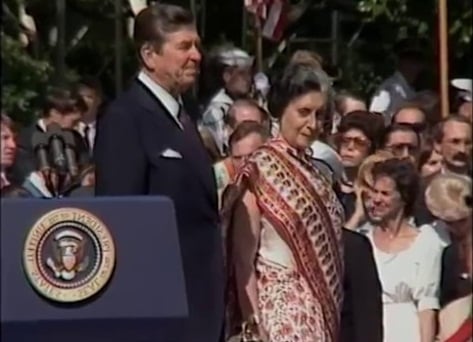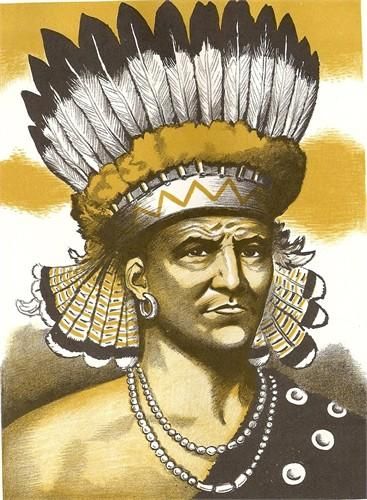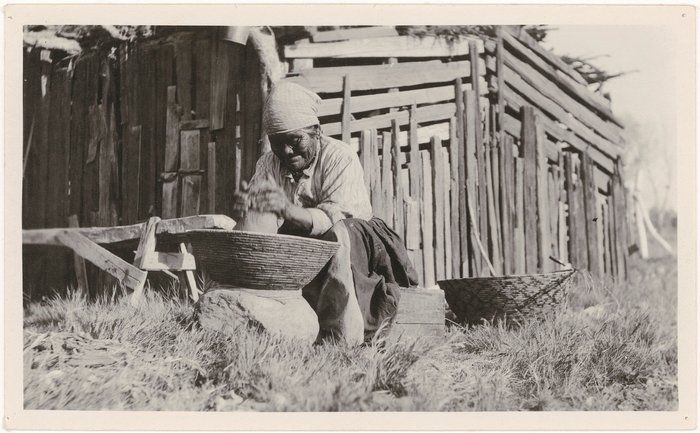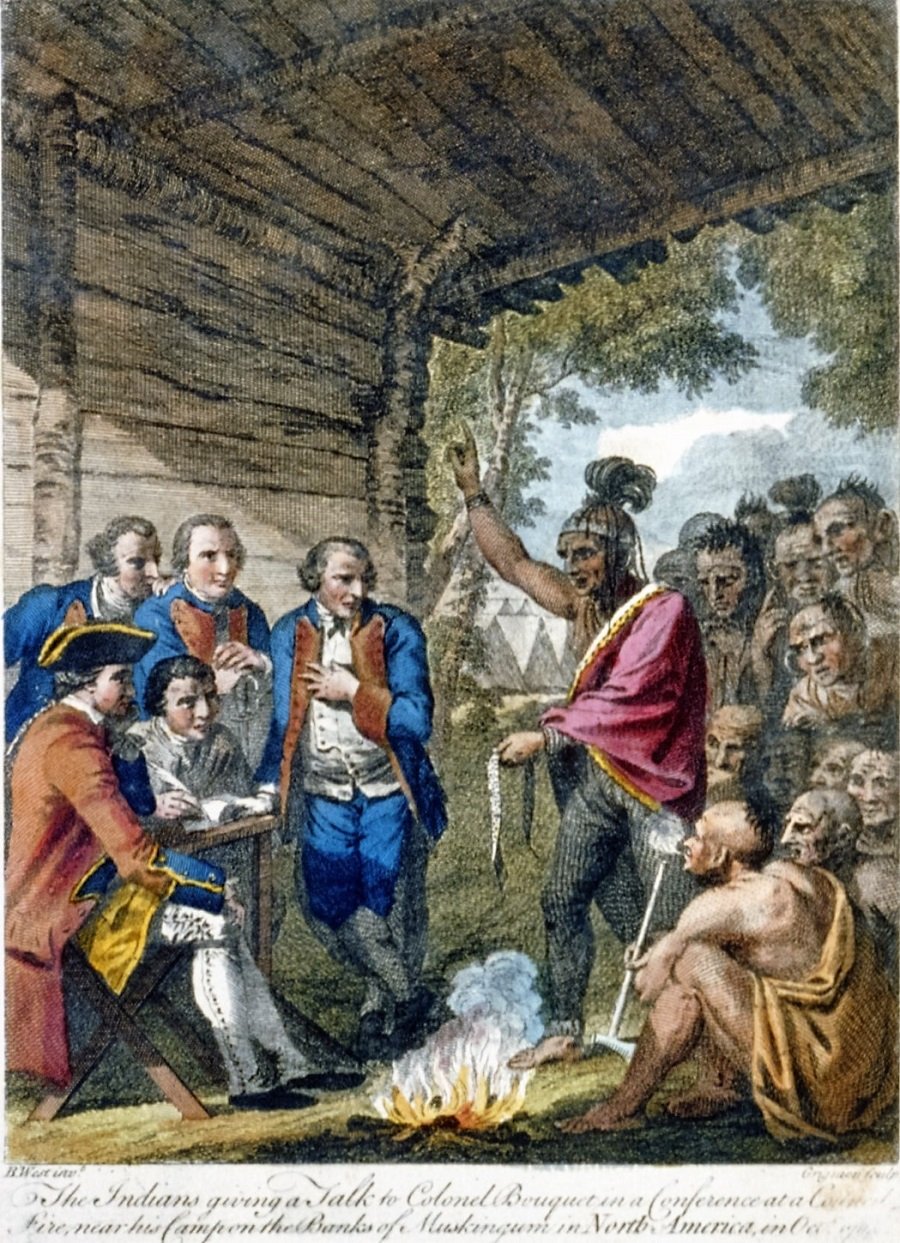President Reagan and the Indians

There have been relatively few American Presidents-most Indians would say no American Presidents-who have had any empathy for or understanding of American Indians. In their ignorance of American Indians and their history, many Presidents simply ignored them, while others have actively discriminated against them, seeking to transfer Indian resources to corporate interests. President Ronald Reagan, the darling of today’s conservatives, was not a particularly good President from an Indian viewpoint. His understanding of history, and particularly American Indian history, appears to have been based more on popular movies than on any real academic research.
1981:
The Reagan administration called for a drastic reduction in federal assistance to Indian tribes. This included an 82% cut in economic development funds. Indians represented 0.6 percent of the country’s population and, under Reagan, they absorbed 2.5 percent of the budget cuts. The cuts seem to be intended to hinder their ability for economic development on the reservations.
1982:
Congress passed House Joint Resolution 444 which asked the President to recognize National Navajo Code Talkers Day. President Ronald Reagan proclaimed August 14 as National Navajo Code Talkers Day in recognition of all Native Americans who gave their special talents and lives so that others might live.
In Washington, D.C., a play called Night of the First Americans was performed at Kennedy Center as a benefit performance to provide scholarships for Indian college students. The Reagan administration objected to the segments in the script which looked at the treaty violations in the Black Hills and the 1973 occupation of Wounded Knee. The script was censored heavily before the work was allowed to be performed.
Congress passed the Southern Arizona Water Rights Settlement Act which would have provided the Tohono O’odham with 76,000 acre-feet of water. The bill also set up a $15 million trust fund to help the tribe develop an efficient water use system. The tribe was to drop its lawsuit against the City of Tucson and other water users in the area in exchange for the passage of the bill. The bill was, however, vetoed by President Ronald Reagan. Secretary of Interior James Watt urged the veto feeling that there should be no new reservations and that Indians should be assimilated so that all existing reservations can be shut down.
In Minnesota, the Reagan administration was very uncomfortable with the findings of the Chippewa researchers working on the “2415 Land Claims Project” which showed that many of the titles to the reservation land are questionable. As a consequence, the Secretary of the Interior canceled the project before completion. The Minnesota Chippewa Tribe submitted 1,198 White Earth land claims.
The “2415” designation is from the law-Title VIII of the U.S. Code, section 2415-passed in 1961 mandating a federal investigation into land and trespass issues on 40 reservations. The “2415” investigation started on the White Earth Reservation in 1978. With less than a third of its research completed, the investigation published a preliminary list of several hundred land parcels with questionable land titles. They wrote:
“The title to such parcels was ‘clouded’ and thus could not be legally sold or transferred until the title was cleared. This meant that thousands of acres of Minnesota’s land, much of which was owned by farmers, could not be used by their erstwhile owners as collateral to secure mortgages or other sorts of loans.”
Since this would have a negative impact on non-Indian land owners, and particularly on corporations, Secretary of the Interior James Watt could not let the study continue.
1983:
President Ronald Reagan unveiled new Indian policies designed to reduce federal funding and bureaucratic structures. According to the White House:
“Excessive regulations and self-perpetuated bureaucracy have stifled Tribal decision-making, thwarted Indian control of reservation resources, and promoted dependency rather than self-sufficiency.”
The new emphasis is on “free market forces” and private sector development. Some view the new policies as another attempt to return to the failed Termination policies of the 1950s.
The Secretary of the Interior suggested that Indians be “freed” from their reservations and assimilated into American society. Secretary James Watt said:
“Every social problem is exaggerated because of socialistic government politics on the Indian reservations.”
He went on to describe Indians as “incompetent wards of the government” and described reservations as hotbeds of unemployment, alcoholism, adultery, divorce, drug abuse, and venereal disease. Many Indian leaders were infuriated at the comments and called for his resignation. Watt’s words seem to echo the sentiments of the 1940s anti-communistic Hoover Commission.
President Ronald Reagan vetoed the Mashantucket Pequot recognition act. Reagan’s position on this matter had been shaped by his interior secretary, James Watt, who had informed him that Indian reservations were examples of ‘failed socialism’ and that the reservations should be phased out of existence. Therefore, federal recognition of Indian tribes was inappropriate.
A second recognition bill quickly passed Congress again and was signed by Reagan. In the second bill, the state of Connecticut agreed to put up more money and the tribes agreed to submit a petition for recognition to the Department of the Interior.
1984:
President Ronald Reagan was given another opportunity to display his ignorance and insensitivity when the Cherokee Nation of Oklahoma and the Eastern Band of Cherokee held a reunion at Red Clay, Tennessee. This was the first meeting of these two groups since the Cherokee removal to Oklahoma in 1838. The two-day event was attended by about 35,000 people. President Ronald Reagan sent a personal message in which he managed to offend many Indians by calling the reunion a “powwow”.
1985:
The Secretary of the Interior held a private meeting with representatives of Peabody Coal. The company was negotiating with the Navajo over the royalty rate which they paid on their mining operations in Arizona. Following the meeting, the Secretary of the Interior blocked a decision from the Bureau of Indian Affairs to increase the royalty rate from 2% to 20%. He ordered the tribe to go back into negotiations with Peabody Coal. The tribe eventually settled for a 12.5% rate.
1986:
The Report of the Task Force on Indian Economic Development noted that
“Indians living on many reservations have suffered from relatively low incomes, high poverty rates, and other adverse socioeconomic circumstances.”
The report indicated that
“the most important long run actions that the Federal government can take to promote Indian economic development may well involve improve-ments in Indian education.”
The report also suggested tax advantages as a way of attracting businesses, preferential contracting, and Federal assistance to Indians in obtaining loans and capital. The Reagan administration tends to ignore the recommendations, particularly with regard to Indian education.
1987:
In Washington, D.C., the Strategic Minerals Task Force urged President Ronald Reagan to declare Indian Country a “national sacrifice zone.” The Task Force reasoned that reservation Indians could be forcibly relocated to urban centers: in other words, a return to the Termination and Relocation policies of the 1950s which helped created hardship and poverty among many Indians.
Industry concerns stemmed from uranium exploration which has left thousands of test holes venting radon into Indian homes and schools. They argued that it would be cheaper to move the Indians than to clean up the messes left behind by the mining companies.
The Strategic Minerals Task Force was made up of representatives from the resource extraction industry (oil, mining, timber) and conservative think-tanks such as the Heritage Foundation. Indians were not included. The government neither filled the test holes nor moved the Indians.
In Washington State, the Yakama individuals who had been caught and convicted in the 1981-1982 Salmonscam operation asked for and received a symbolic retrial before the Yakama Nation Tribal Court. The trial was an assertion of tribal rights to enforce its own fishing regulations. In the trial, David Sohappy, Sr. claimed that his actions were governed by traditional religious practices. The jury concluded that the defendants had been entrapped by federal agents and that Indian religious values take precedence over federal law. The tribal council asked President Ronald Reagan to pardon the men for the federal charges. There was no response from the President and all of the men were returned to federal prisons.
1988:
When quizzed by Russian college students about American Indian policy, President Ronald Reagan suggested that the United States had humored Indians by giving them millions of acres of land and appeared to be unaware that American Indians are citizens. In response to these comments, Colorado Congressman Ben Nighthorse Campbell (Cheyenne) told the media:
“It’s incredible he knows so little. …He must have been learning [his history] from those old celluloid Westerns he used to act in.”
In the state of Washington, Quinault President Joe de la Cruz responded:
“The president is like a lot of Americans who do not understand the United States’ own Constitution and the reason for treaties, which are part of the law of the land. That is because American history does not teach the part that the Indians played in the formation of the U.S. Constitution.”
In response to the President’s ignorance and insensitivity regarding American Indians, their current status, and their histories, tribal leaders requested a face-to-face meeting at the White House.
In the final days of his administration, President Reagan met with tribal leaders for twenty minutes. During the meeting President Reagan apologized for his earlier inaccurate statements. He praised the achievements and contributions of Indian people, and explained that his remarks did not reflect the thrust of his administration’s Indian policy.



